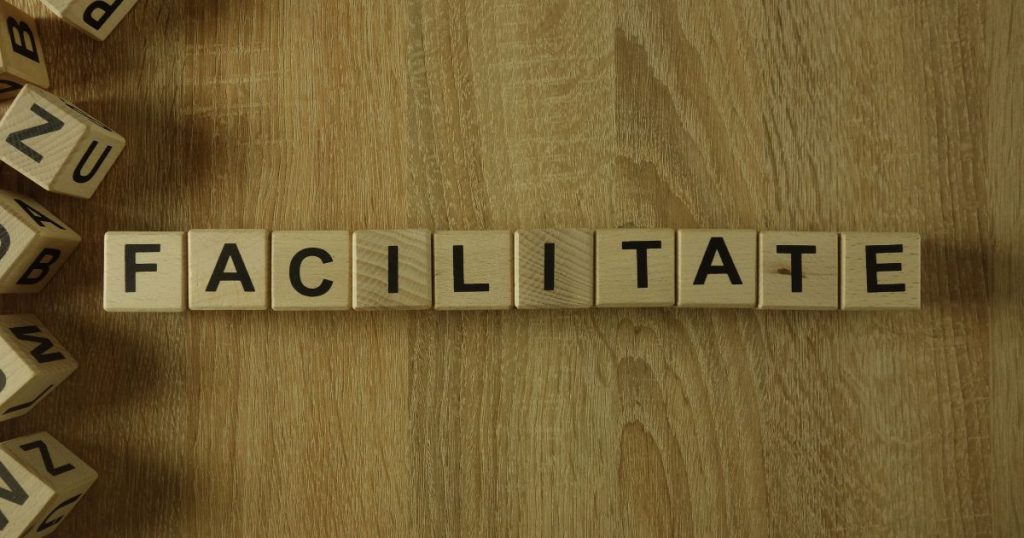If you’re looking for the best time management tips for facilitators then you’re in the right place!
As a facilitator, time management is critical for running an effective session. Ensuring the time allotted for activities and discussions is used efficiently allows time for all participants to get the most out of the facilitation.
Managing time effectively also ensures that topics have room to be explored in full, while making sure all necessary points are also discussed.
Having time limits and clear expectations around how long conversations and tasks should take not only keeps participants on track but also builds respect between facilitator and attendees as well as a sense of urgency and responsibility towards tasks at hand.
Contents
- Why Is Time Management Important As A Facilitator?
- 11 Top Time Management Tips for Facilitators
- 1. Prioritize tasks and set clear goals
- 2. Create a timeline for activities.
- 3. Monitor progress and adjust accordingly.
- 4. Encourage participants to stay on track.
- 5. Be prepared for unexpected events.
- 6. Set clear expectations at the outset
- 7. Schedule breaks as needed
- 8. Agenda planning
- 9. Open communication
- 10. Monitor attentiveness & engagement levels
- 11. Give Yourself Wiggle-Room
- Wrapping Up
Why Is Time Management Important As A Facilitator?
Time management is an important part of successful facilitation.
It helps facilitators create structure and guide the progress of their meetings, allowing them to stay on track and maximize productivity.
Do you ever feel like time is running away from you during a workshop or meeting? It’s easy to get caught up in the moment and lose track of time, especially when you’re facilitating a group of individuals with different needs and perspectives.
But as a facilitator, one of the most important things you can do is to effectively manage your time.
Why is time management so crucial in facilitation? Well, let me ask you a few questions:
- Have you ever been in a meeting that felt like it dragged on forever?
- Have you ever facilitated a workshop where activities took longer than expected, causing you to rush through the rest of the agenda?
If you answered yes to either of these questions, then you know how important it is to have a solid handle on time management.
When time is mismanaged during a meeting or workshop, it can lead to frustration, loss of engagement, and ultimately a lack of results.
11 Top Time Management Tips for Facilitators
So, what can you do to ensure that your meetings and workshops run smoothly and efficiently? Here are some tips:
1. Prioritize tasks and set clear goals
Before the meeting or workshop, take a moment to reflect on what you hope to accomplish. Make a list of the most important tasks and prioritize them. This will help you stay focused and on track.
2. Create a timeline for activities.
Plan ahead. Allocate a specific amount of time for each activity. This will give you a clear understanding of the pace of the meeting or workshop and help you stay on track.
3. Monitor progress and adjust accordingly.
It’s important to be flexible and adaptable during a meeting or workshop. If you find that you’re running behind, take a moment to reassess and make adjustments to the timeline.
4. Encourage participants to stay on track.
Facilitation is a team effort, and your participants play a crucial role in ensuring that the meeting or workshop stays on track. Encourage them to stay focused and on task, and offer gentle reminders when necessary.
5. Be prepared for unexpected events.
No matter how well you plan, unexpected events can arise. Fire drills happen. Be prepared to adjust and pivot if necessary, and always have a backup plan in case of unexpected interruptions or changes in the schedule.
6. Set clear expectations at the outset
Let your participants know what is expected of them during the meeting and make sure they understand what you hope to accomplish with their participation. Setting expectations upfront gives everyone a clear understanding of the purpose and can help ensure that time is used efficiently throughout the meeting.
7. Schedule breaks as needed
Breaks can be a great way to provide relief from long or intense discussions, give everyone a chance to stretch their legs, or just take a breather before tackling more difficult topics. Gift-giving activities can also be helpful during downtime – it’s not only fun but it adds lightheartedness into your facilitation style!
See also: Housekeeping for facilitators – what you need to know
8. Agenda planning
When crafting an agenda for your meeting, take into account any constraints imposed by external factors such as deadlines or specific goals you need to meet (i.e., producing deliverables). Use this information when considering how much time should be allocated per topic so that you don’t end up devoting too little or too much energy towards certain goals – writing out an agenda ahead of time will save valuable minutes in decision-making down the line.
9. Open communication
Keep open lines of communication by engaging with each participant directly as well as engaging in group discussions when appropriate – this will boost morale amongst participants and aid you in achieving objectives quicker than if done alone since people have natural tendencies towards collaboration!
Additionally, try incorporating mini “check-ins” throughout each session where facilitators ask attendees about any issues they may have been encountering; addressing these concerns quickly allows for smoother transitory flows between topics/deliverables whilst keeping everyone alert on progress made thus far (which keeps motivation high!).
10. Monitor attentiveness & engagement levels
Observe participants closely while they speak – pay attention not only to verbal cues but also look out for visual ones such as body language which can indicate interest/disinterest in specific topics being discussed – this will help determine whether conversations are taking off or stalling; based upon these determinations leaders may choose switch gears & start introducing content related areas versus just dissecting current matters further (hence enabling groups sticking points faster).
11. Give Yourself Wiggle-Room
Allowing yourself enough wiggle-room either through larger allotted timeslots so that all aspects surrounding one particular topic get addressed thoroughly without having disruption due next item on schedule OR shortening conversations after sufficient material has been covered ensures efficient utilisation every single minute available within the session window ensuring no precious moments go wasted.
Wrapping Up
And that’s a wrap!
By now, you should have a solid understanding of how to effectively manage your time during a workshop or meeting.
By prioritizing tasks, setting clear goals, and being prepared for the unexpected, you can ensure that your facilitation is smooth, efficient, and effective.
Remember, time management is an ongoing process and requires practice and patience. Don’t be afraid to experiment and try new techniques, and most importantly, don’t be too hard on yourself if things don’t go as planned.
Every meeting or workshop is a learning opportunity, and with time, you’ll get better and better at time management.
Thank you for taking the time to read this post, and we hope you found it helpful. If you have any other tips or tricks for time management during facilitation, we’d love to hear from you in the comments.



